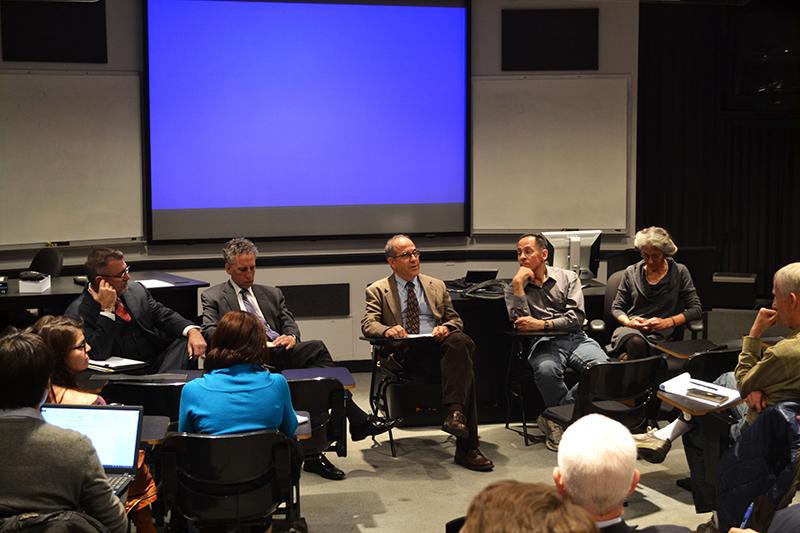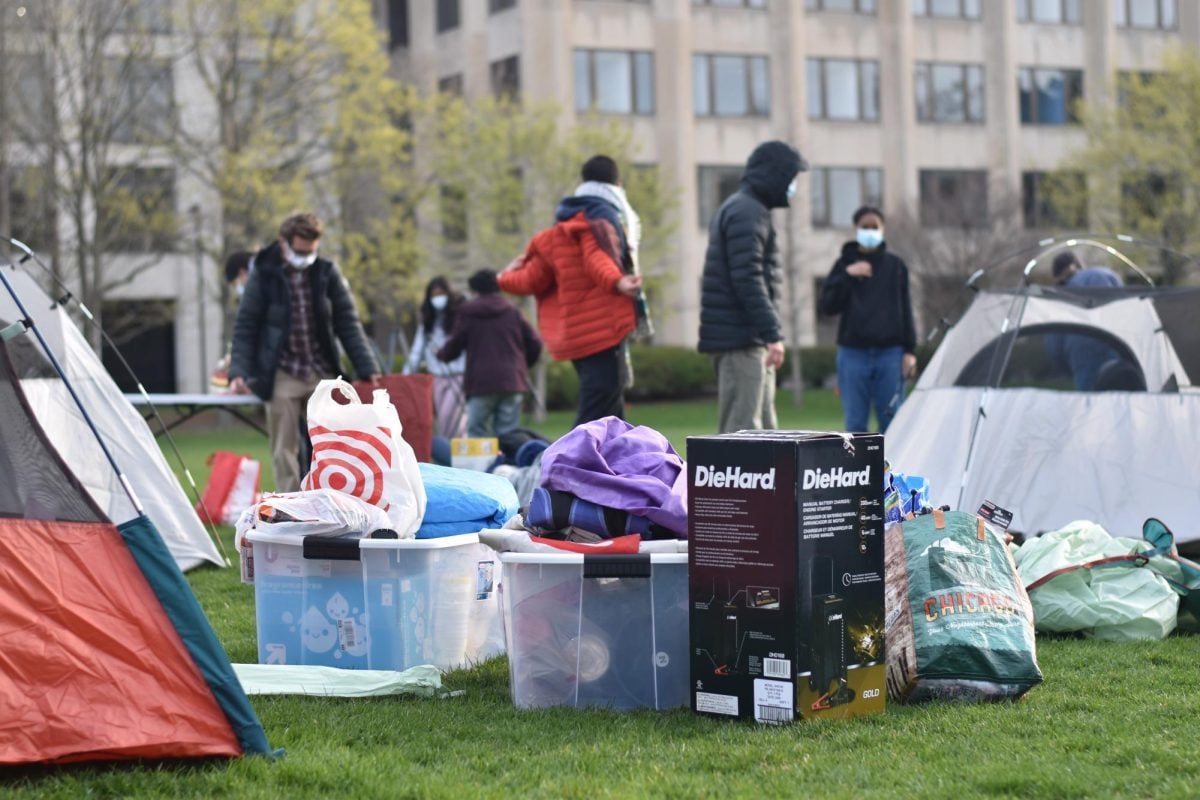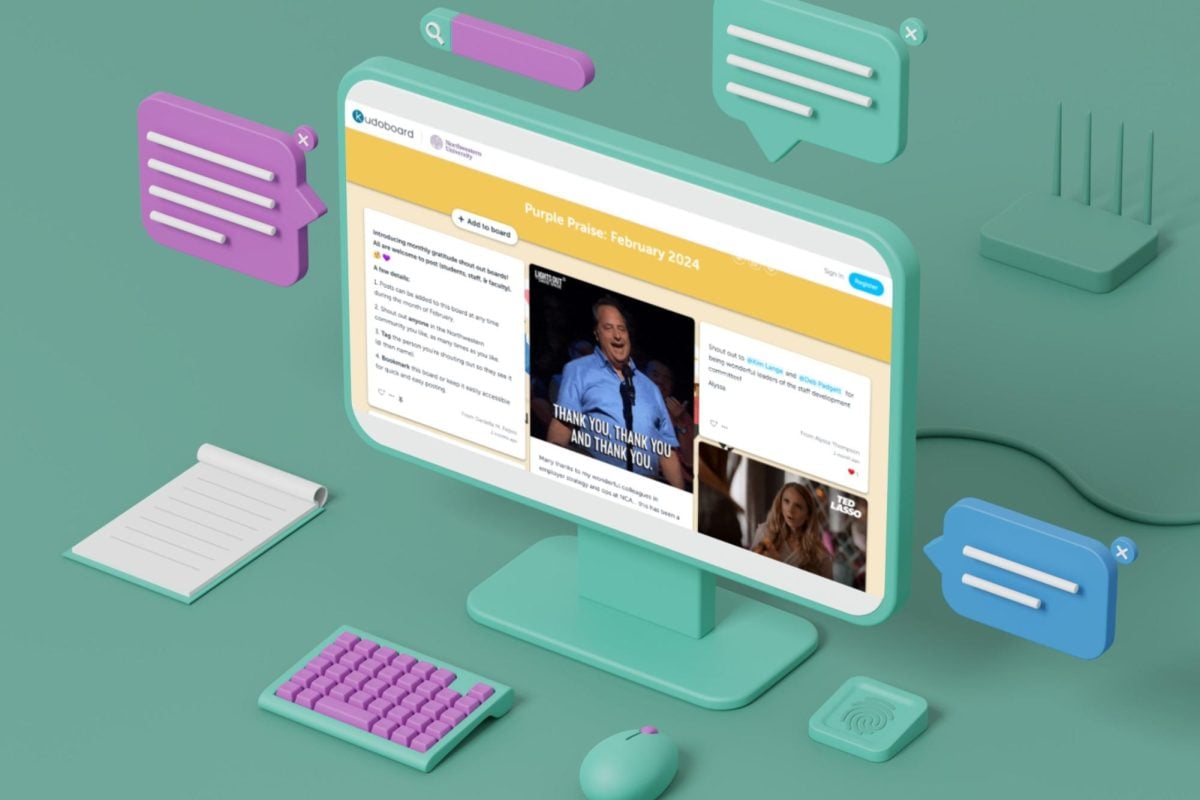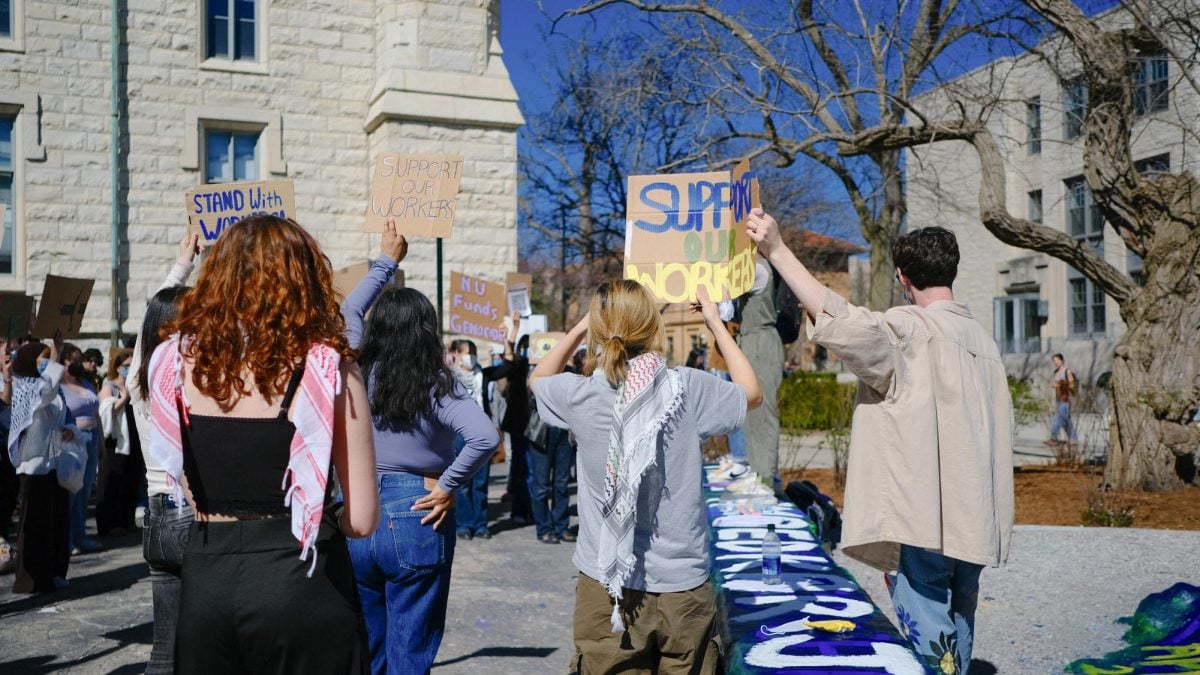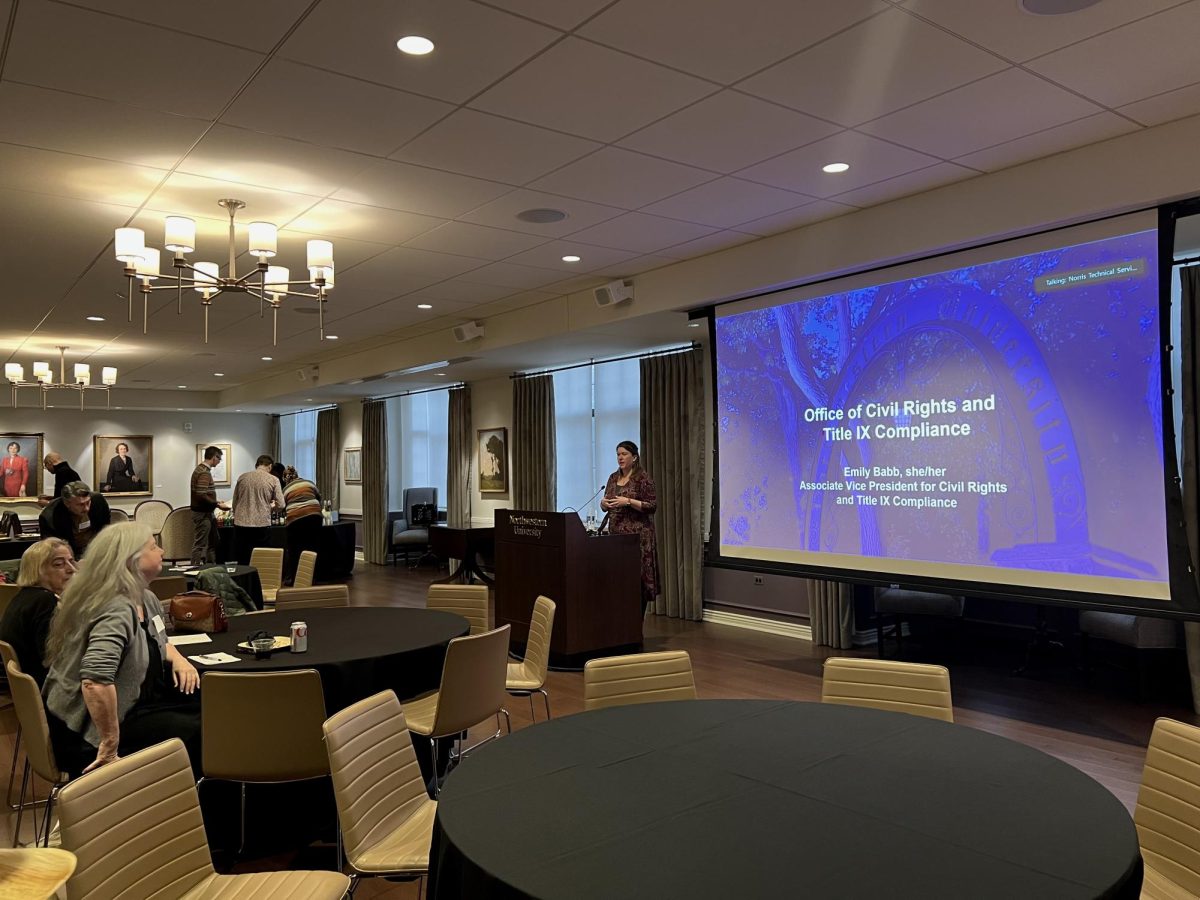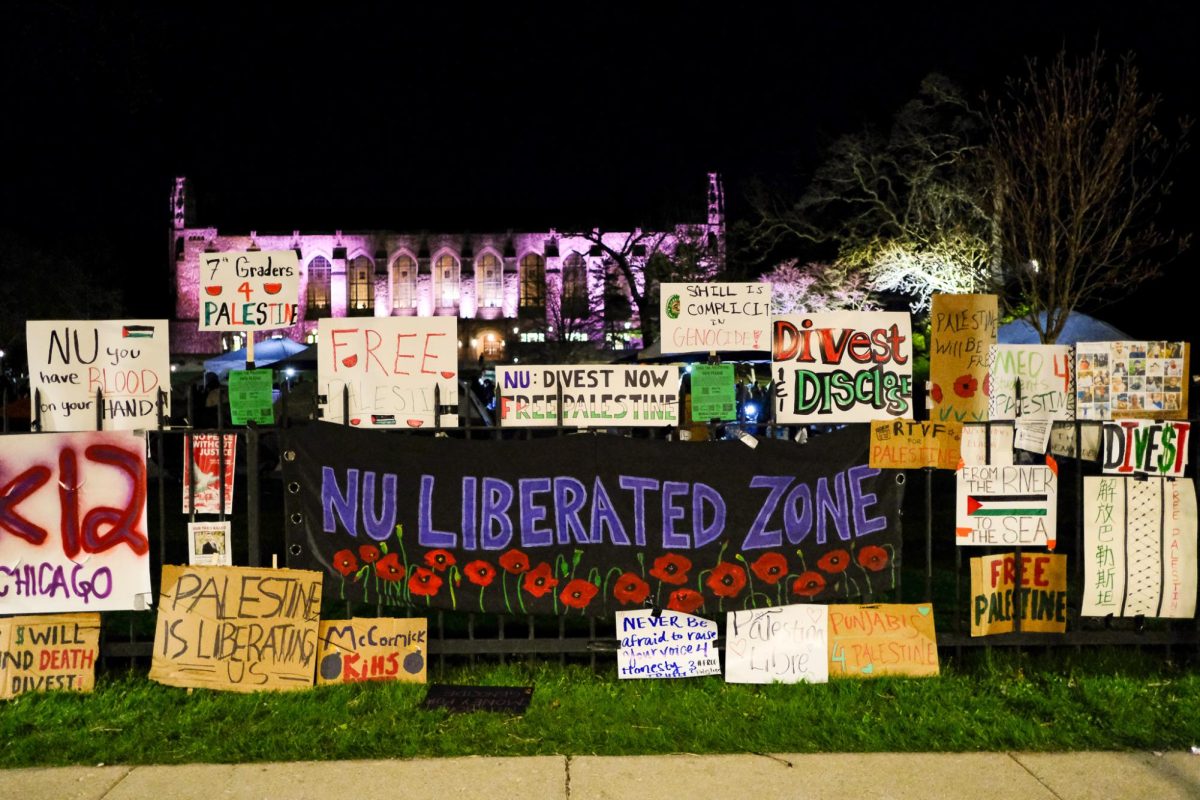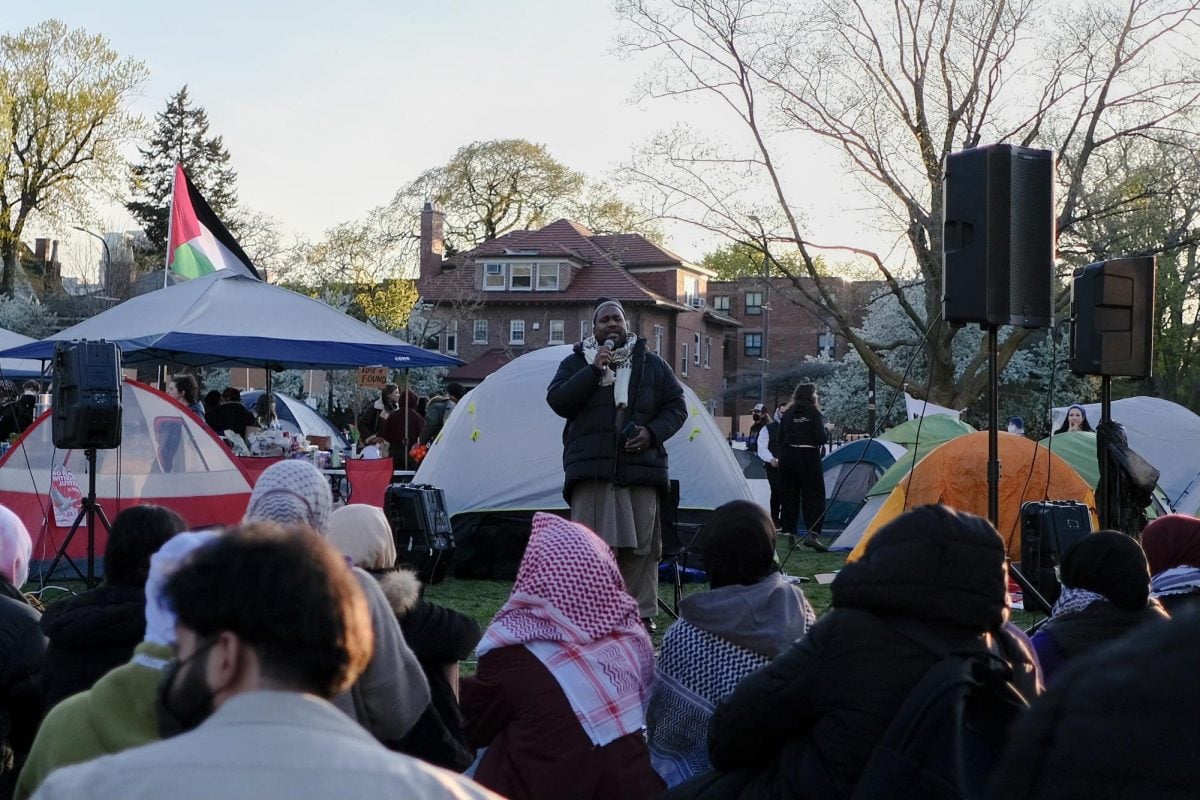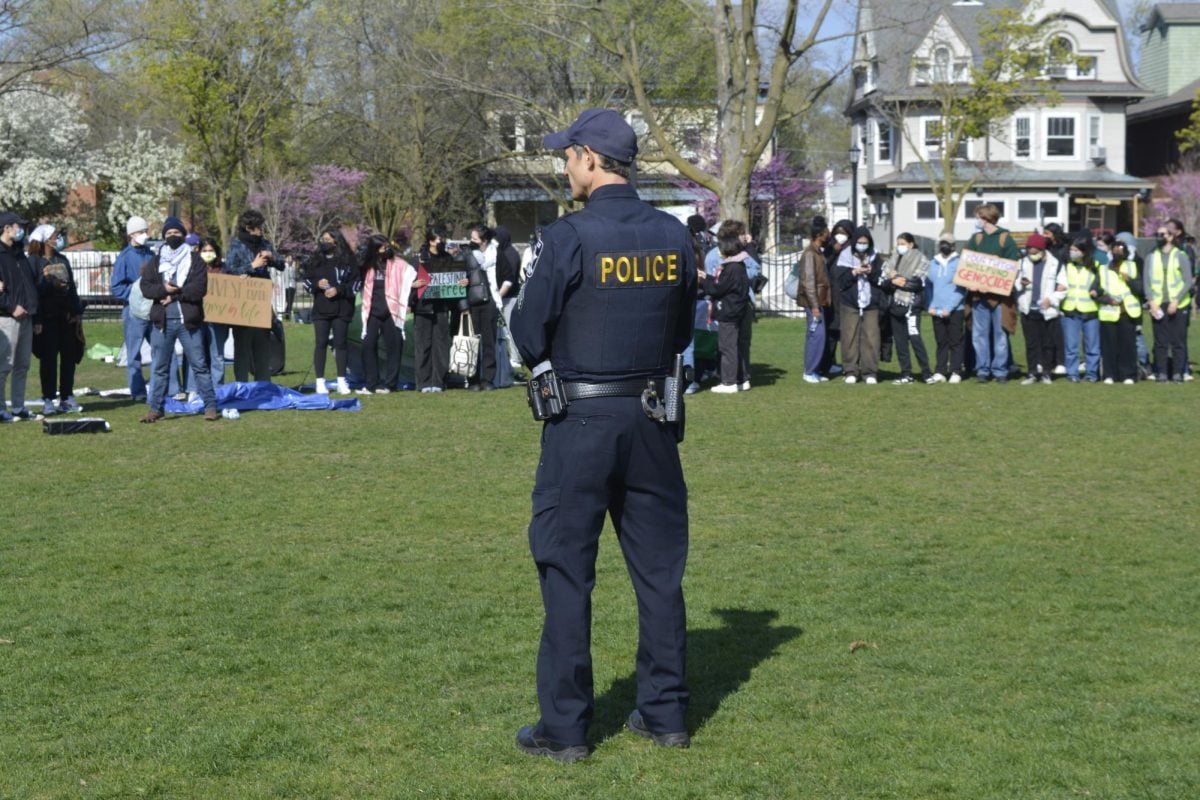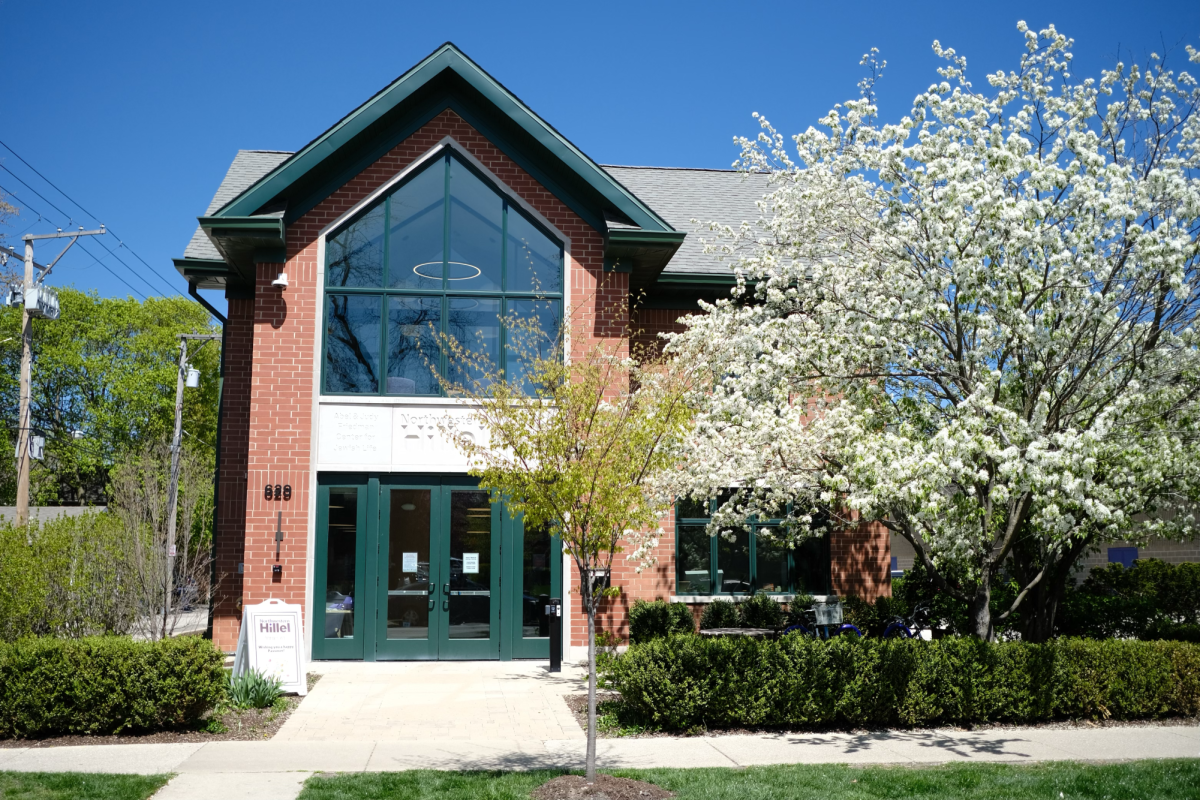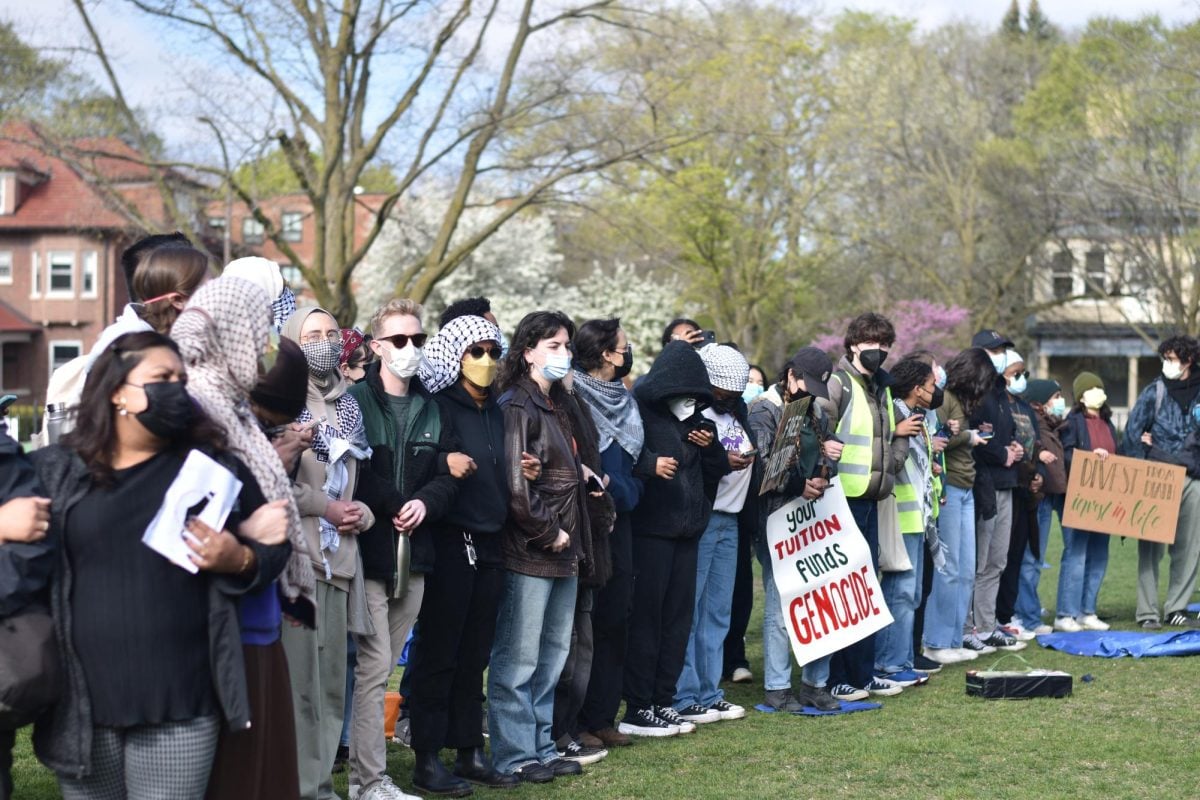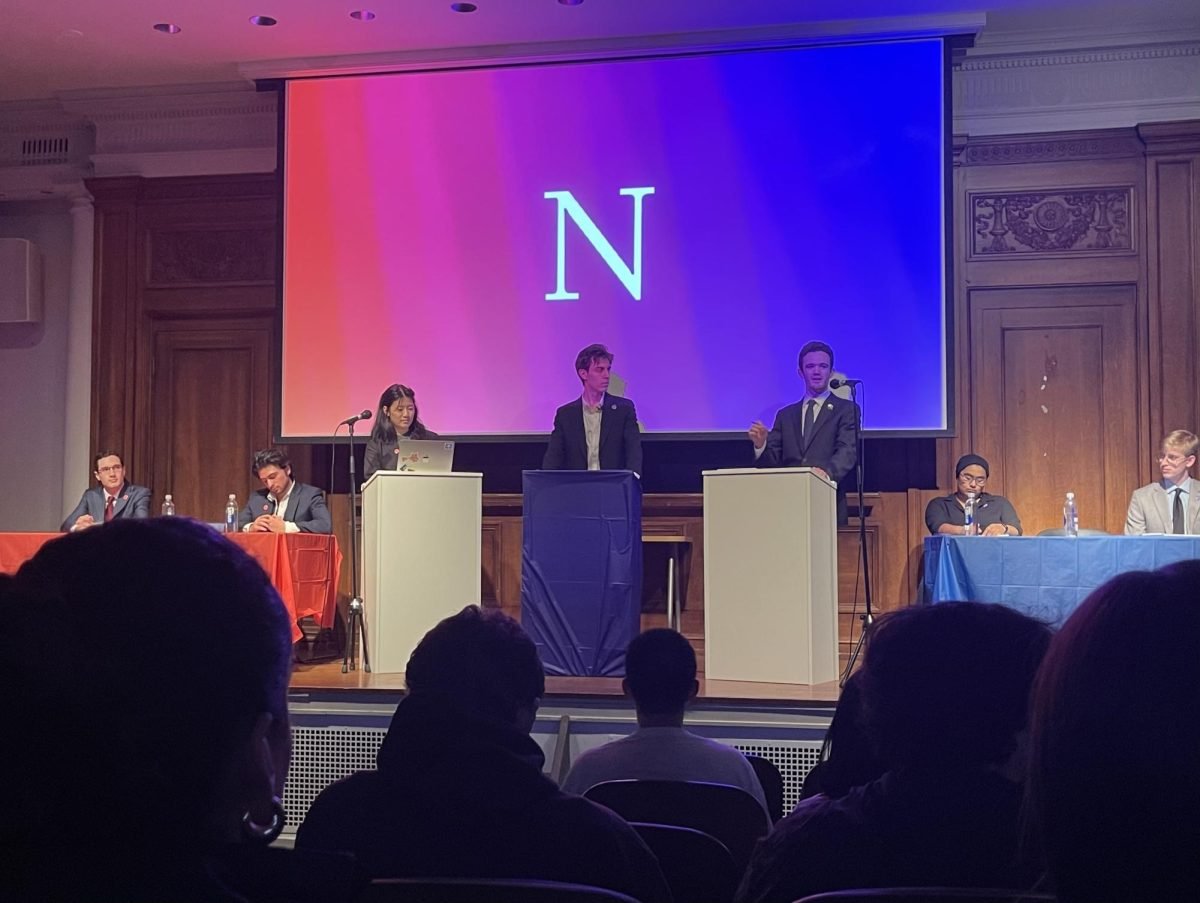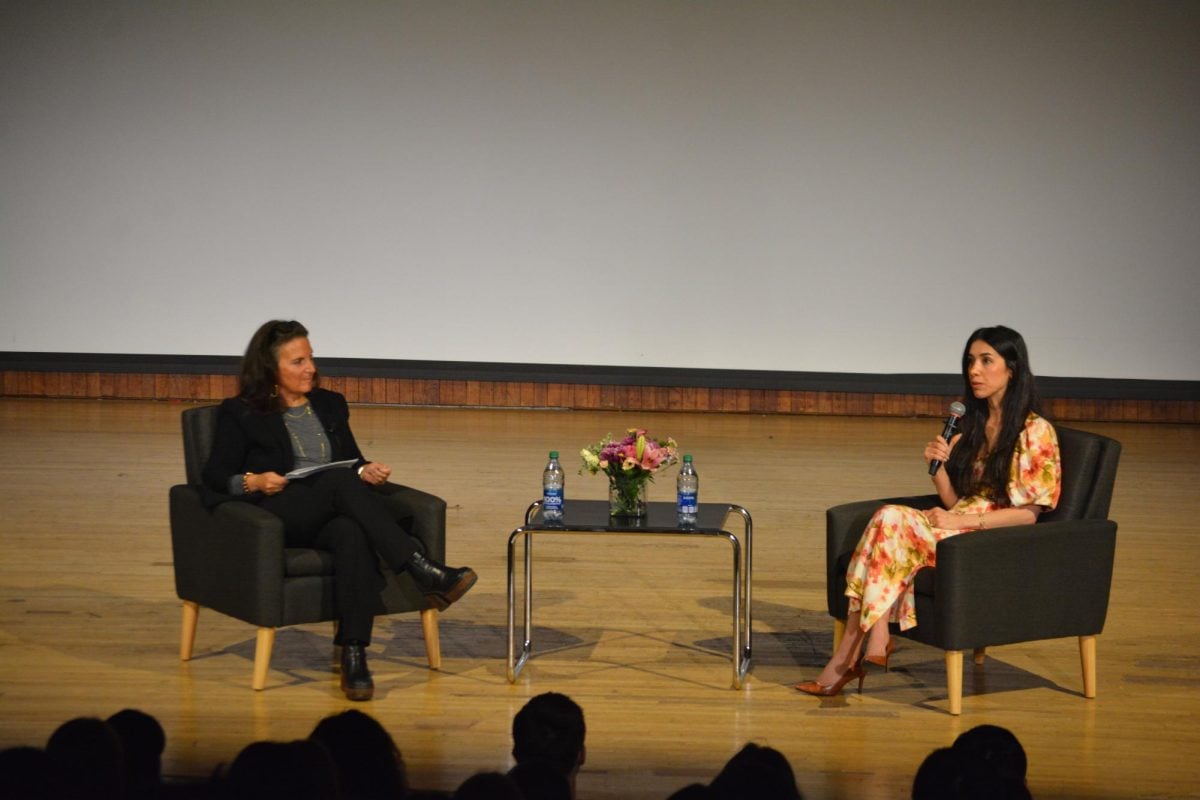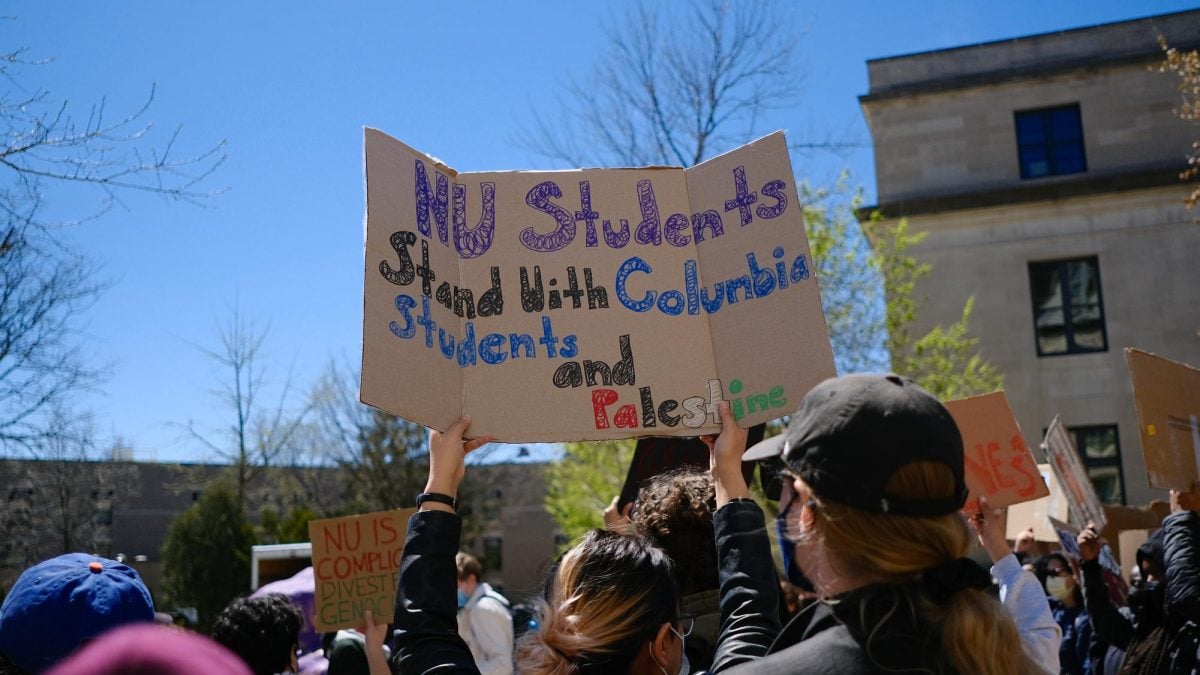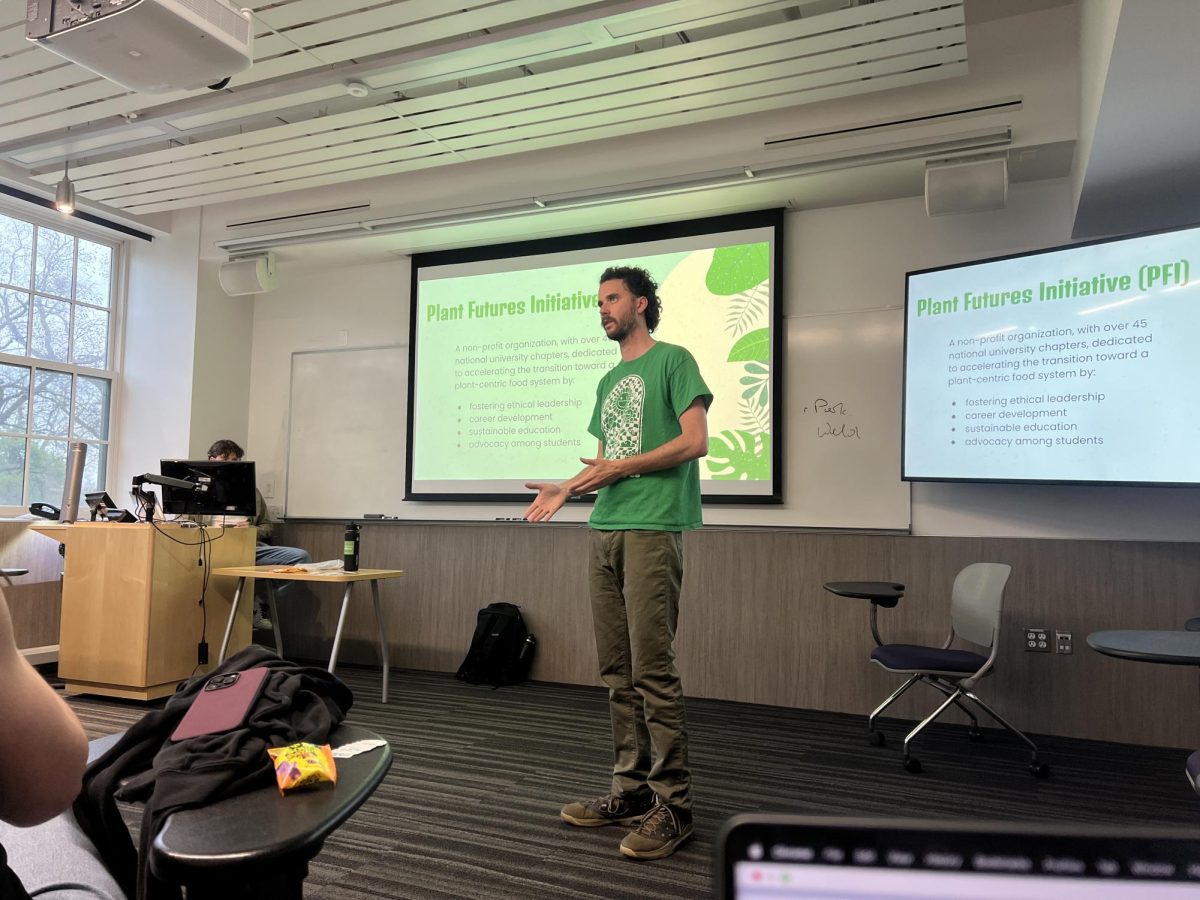Emotions ran high Wednesday night at University Library as the John Evans Study Committee held an open forum to give an update on its research, answer questions and take suggestions from the Northwestern community.
Provost Dan Linzer formed a study committee last year to investigate the role University founder John Evans played in the 1864 Sand Creek Massacre and whether NU benefitted financially from Evans’ actions. The massacre resulted in the death of more than 100 Cheyenne and Arapaho people in the Colorado Territory during Evans’ time as governor. The committee, which is led by English and history Prof. Carl Smith, includes three additional NU faculty and four professors from other universities.
(In Focus: Students demand Native American studies, recognition of Evans’ role in Sand Creek Massacre)
Heather Menefee, co-president of the Native American and Indigenous Student Alliance, said the environment at the event, which was attended by about 80 people, felt tense.
“It wasn’t helped by people raising their voices and committee members raising their voices and cutting people off and getting angry or defensive, but I think overall I guess it’s successful in that so many people showed up,” the Weinberg junior said.
Although the committee was created following a community petition, some students, faculty and alumni have said they are disappointed with the narrow focus of the study. Menefee said the focus is “pretty self-serving on the part of the University.”
“Having a committee with a narrow focus on John Evans is in some ways a privilege that the University can afford, but it continues the erasure of indigenous people and their voices in a story about them,” she said. “If Northwestern was serious about native studies, this would be the time to start really thinking about that, but instead if this committee comes out and says that they can’t find a direct order that John Evans ordered the massacre, it seems like a lot of these contemporary issues are going to be pushed aside.”
(Northwestern committee to investigate Evans’ role in Sand Creek Massacre)
Megan Bang (SESP ’08) attended the event because she said she has been thinking about the underrepresentation of Native Americans at NU since she was a student here half a decade ago.
“I would like the question about what is Northwestern’s relationship and responsibility to Native American peoples to be a more central question,” she said. “It’s admissions. It’s intellectual space in the University, as well. It’s not just an affirmative action kind of thing. It’s not just a representational kind of thing.”
Bang added that she would like to see representatives from the Cheyenne and Arapaho communities represented on the committee.
Although many audience members expressed disappointment regarding the lack of effort demonstrated by the University to reconcile Evans’ involvement in the Massacre, history Prof. Peter Hayes, a member of the committee, said Evans’ role, if he had any, is still unclear.
“We don’t know John Evans was involved in the Sand Creek Massacre,” he said. “If we knew John Evans gave the orders for the Sand Creek Massacre, this job would be easy. All of the evidence is circumstantial.”
Smith said the event was exactly what the committee wanted: an opportunity to share its findings and receive feedback. He said he was not surprised by the environment.
“It is so deeply charged as a historical and political and personal event that it would be surprising for me if people did not have this deep and sincere feeling,” he said after the event. “It has been in many ways a wrong that has been unresolved for now almost 150 years, and it did irreversible damage to a significant number of people.”
Feinberg and religious studies Prof. Laurie Zoloth concluded Wednesday’s event by thanking the students who first submitted the proposal, calling it “a courageous act.”
“I didn’t know about Sand Creek, and I’m ashamed of that,” she said. “You have already done a enormous amount for this campus, one of them being the education of many faculty.”
Email: [email protected]
Twitter: @tylerpager

